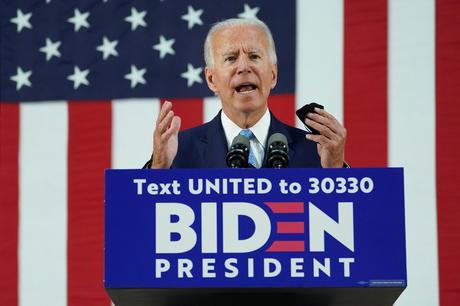
(Washington) Joe Biden promised Thursday to inject 700 billion dollars to revive American production after the coronavirus crisis, a plan that opposes the economic program of Donald Trump, his opponent in the November presidential election.
Posted on July 9 2020 at 12 h 46
France Media Agency
The Democratic candidate for the White House, struggling to relaunch his campaign interrupted by the pandemic, must present part of this plan Thursday afternoon during a visit to a factory in Dunmore, Pennsylvania, Key state to win to hope to beat Donald Trump on November 3.
This ambitious program provides for the creation of more than five million jobs and to replace those lost by the COVID crisis – 19 which decimated l economy and makes 18 million unemployed.
It combines investments in the national industry and in research, independence from foreign suppliers, support for small businesses and greater freedom for employees to join a union.
Joe Biden “does not accept the defeatist view that the forces of automation and globalization make us unable to keep well-paid union jobs and create more in the United States,” says the team. campaign of the former vice-president, supported by several union organizations.
“American industry was the arsenal of democracy during the Second World War, and must be part of the arsenal of American prosperity today, helping to fuel economic recovery for families who are working, ”she adds in her presentation of the plan.
With this project, Mr. Biden hopes to dispel doubts about his ability to manage the American economy, faced with the billionaire and former real estate tycoon.
Donald Trump's victory in 2016 rested in part on the promise to revive American industrial activity after waves of relocation and to renegotiate international trade treaties according to him unfavorable to the United States.
The plan also calls for “the largest mobilization of public investment in supply, infrastructure and R&D since the Second World War,” said Biden’s campaign team.
After his election, Mr. Biden will also launch a study on the weaknesses of supply chains in sectors like medical equipment when according to his team, the erratic management of the coronavirus pandemic by the Trump government has led shortages of protective equipment such as surgical masks.

